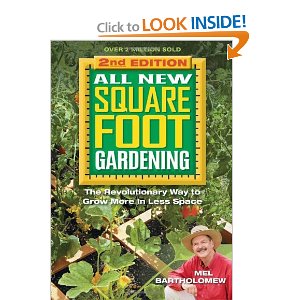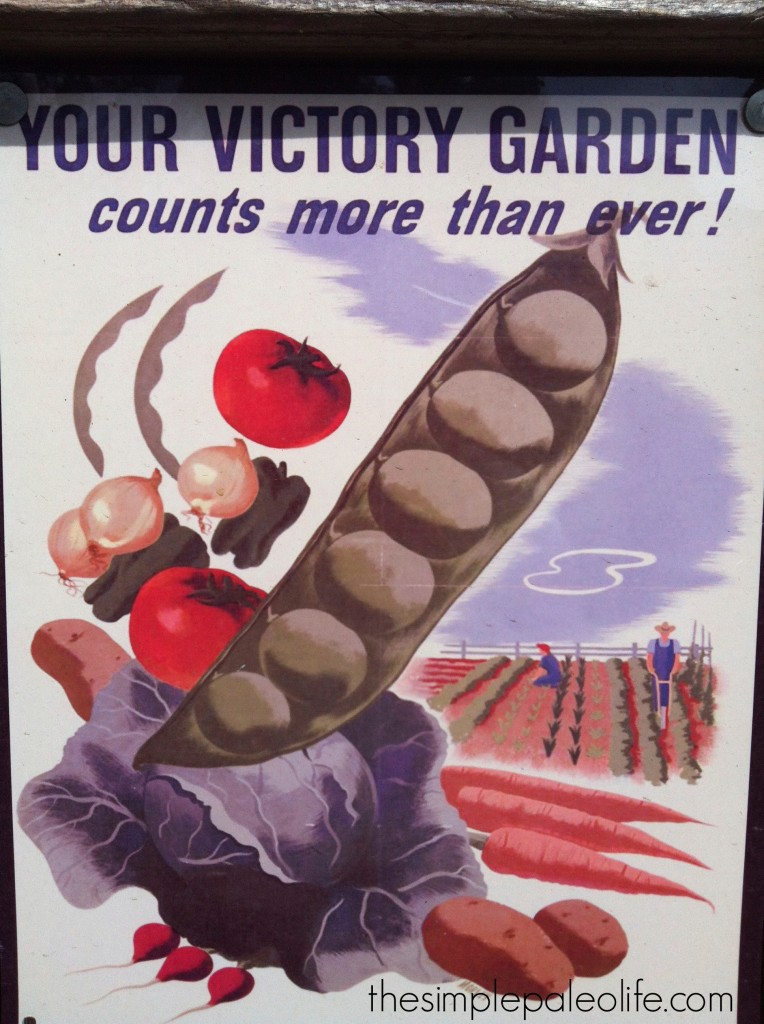
A couple years ago when we moved from and apartment to a house we decided to start a garden. Since we’re renting and not sure how long we’ll stay in this house we wanted to do it in an inexpensive way.
This is what we did:
First, we purchased this Square Foot Gardening book, by Mel Bartholomew It has been a great resource and I find myself pulling it out each time we plant something.
When we first started we didn’t want to spend any money on raised beds or soil (although, I have to say I regret that since it would have likely paid for itself in a more successful harvest). Instead we bought paving stones, stakes and twine and separated out our 4′ x 4′ beds.
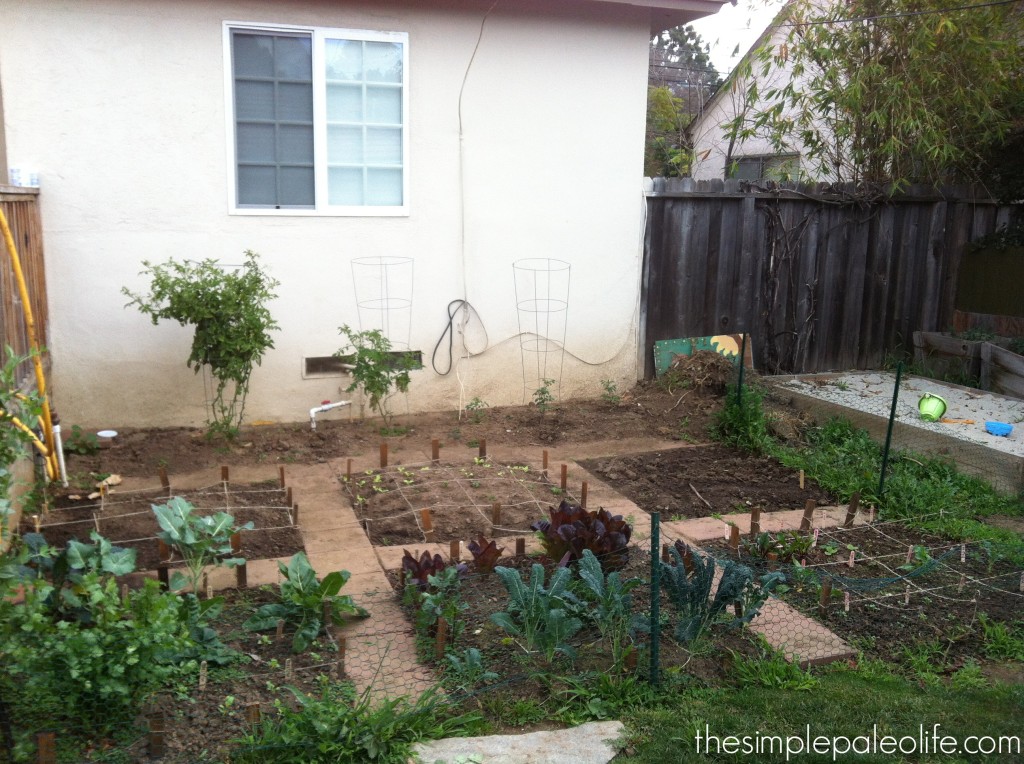
One Man’s Trash is Another Man’s Treasure
If you do plan on building raised beds you could look at Craigslist or Freecycle for wood and other supplies for free or very cheap. What we’ll be doing this year is purchasing these 4 feet by 4 feet raised garden beds so that we can use higher quality soil in hopes to produce a little more.
Seeds over Seedlings
Needless to say seeds are less expensive than seedlings although they will require more time and care. We bought a one year subscription to the Seeds of the Month Club and also, checked out seeds from the Seed Library of Los Angeles for a $10 lifetime membership!
Rags into riches
We have our own compost. We started with a worm bin and eventually graduated to a compost bin. This means we have a 3rd small trash can under the sink and a couple times a week we dump it into the compost. Its amazing how much less trash we put out since we started doing this! And the kids love checking out the worms when we harvest the compost.
Government Handouts
It turns out the City of Los Angeles and the City of Santa Monica are happy to give away compost and mulch. What a great way to reduce, reuse and recycle! Check your local city’s website or call them to find out if they do daily, monthly or seasonal compost giveaways and load up!
We’ve also started a small orchard for free with organizations like The Social Justice Learning Institute. They give away 1000 trees each year to families in the area. They also provide free workshops on caring for your tree, composting, etc.
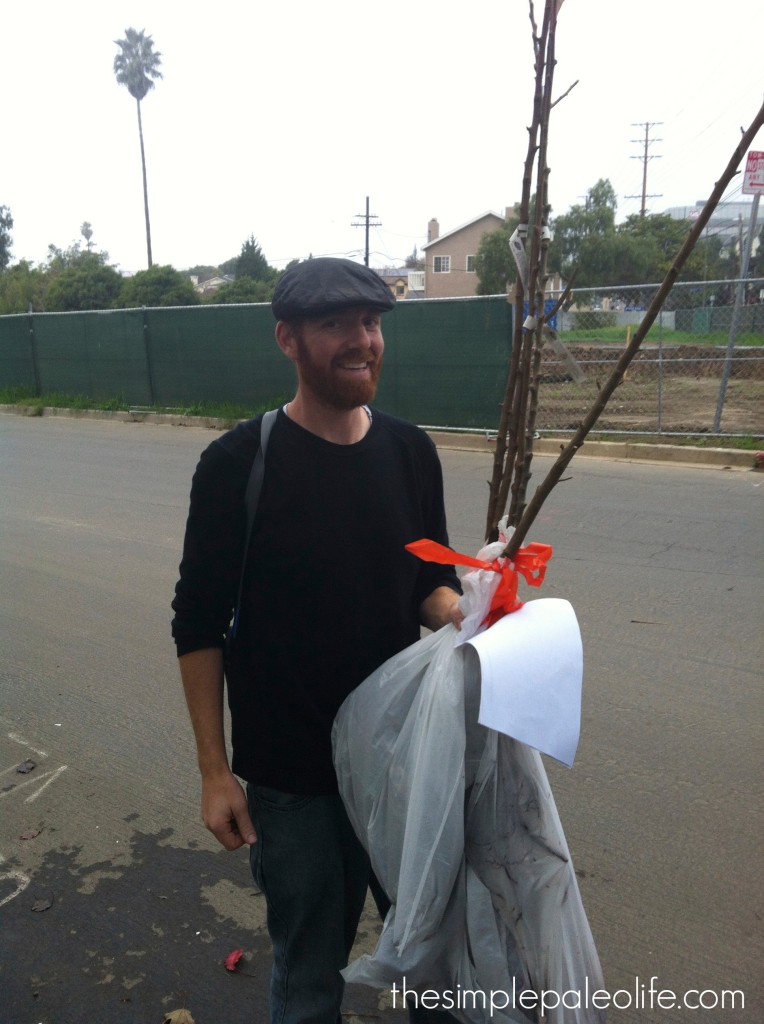
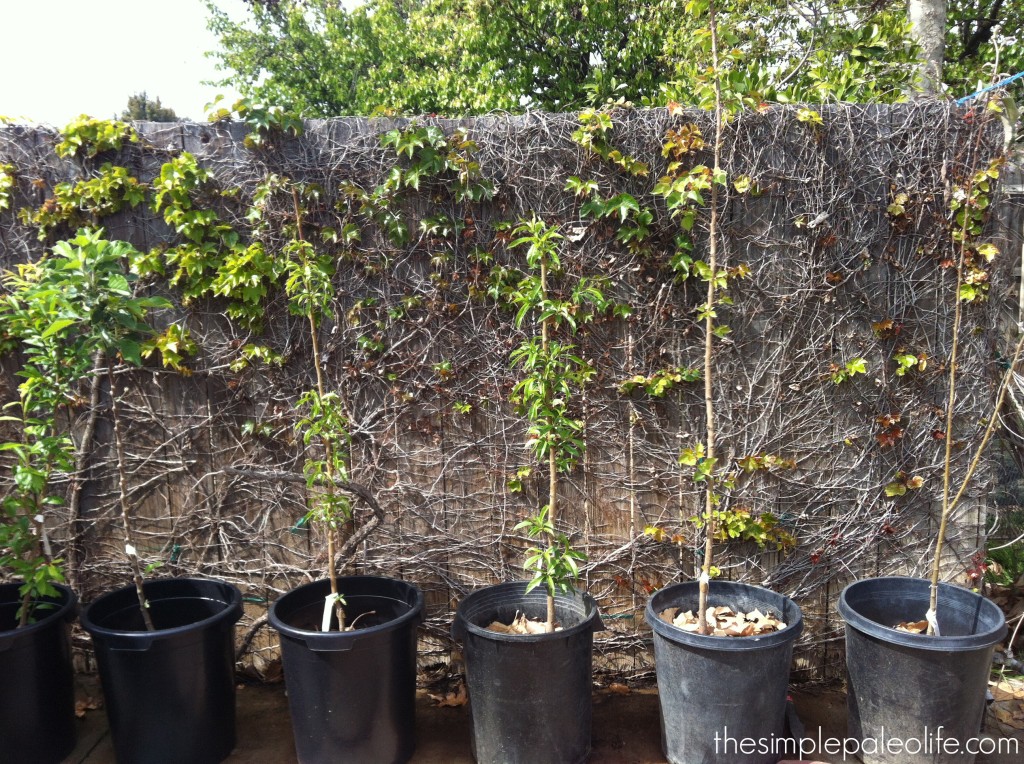
Produce swaps
Once a month we would participate in a local produce swap organized by a member of our community. When our orange tree was supplying more oranges than we could possibly use we’d trade a box of them for this beautiful array of produce:
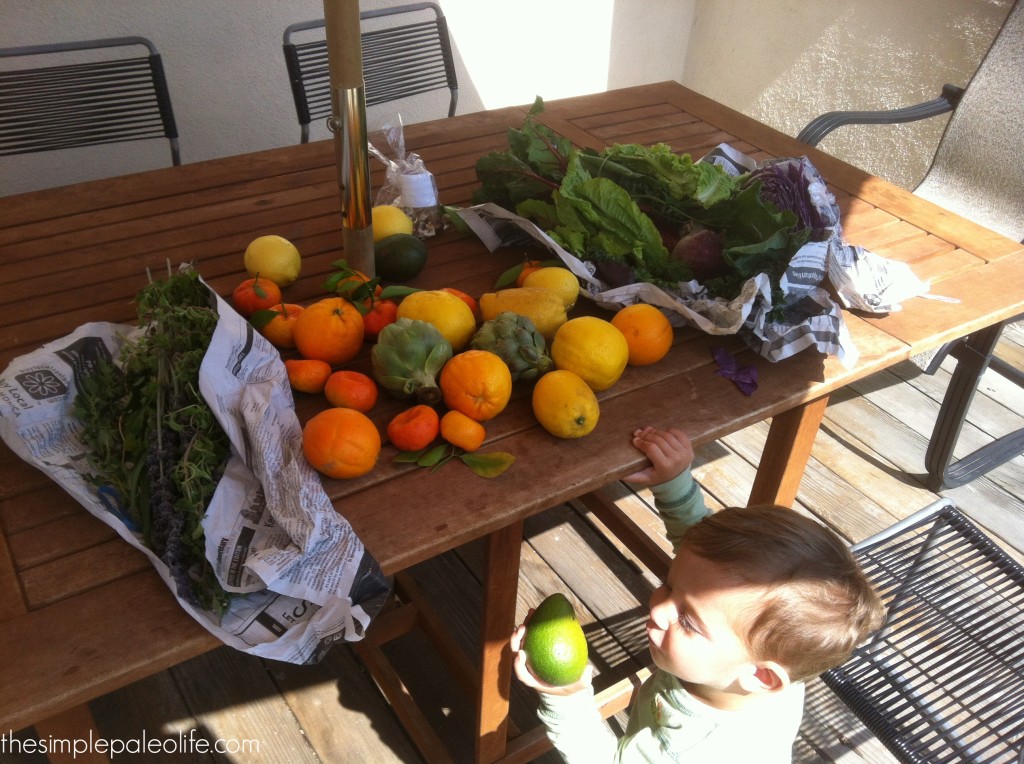
You can look online to find one in your area or start your own. In Southern California we are fortunate to have a year round growing season and many homes have fruit trees that produce way more than that family can consume.
What are your cheap gardening tips?
Latest posts by Sylvie McCracken (see all)
- Treating H. Pylori (Part 3): What H. Pylori Does to the Body - August 8, 2022
- Treating H. Pylori (Part 2): How H. Pylori is Contracted - August 3, 2022
- Understanding Beef Labels: Organic, Pastured, Grass-Fed & Grain-Finished - July 25, 2022
